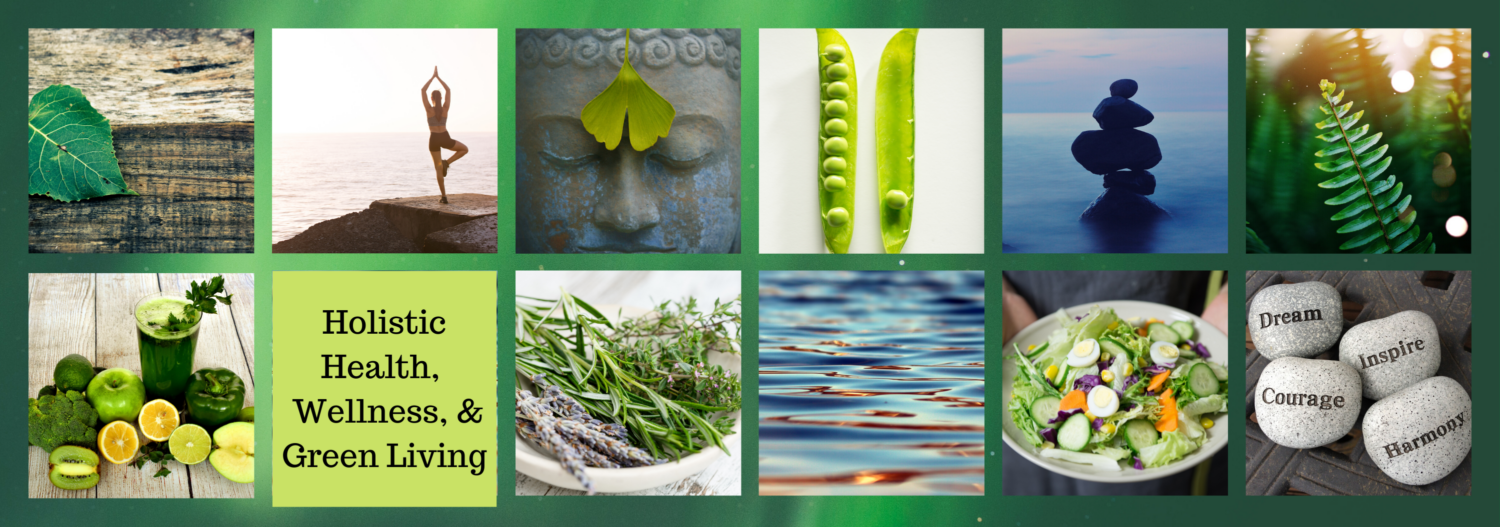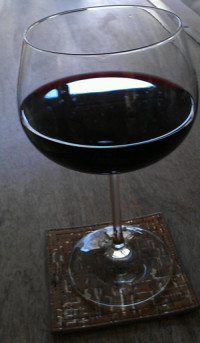I enjoy savoring a glass of wine every now and then, so when I heard the latest research news about how resveratrol, a potent plant polyphenol found in grapes and other foods, can help ease depression and more, I thought it would be worthy to share with you.
Read on to learn exactly what the study showed. Plus, discover which wine has the highest resveratrol content and how you can get this important antioxidant in your diet in other ways, some of which may very well surprise you.
About the Study
The research study, which was led by Susan K. Wood, Ph.D., assistant professor at the University of South Carolina School of Medicine, was recently presented at the Experimental Biology 2015 meeting. It was done on socially stressed rats, who were “bullied” by larger, dominant rats. The rats who were given resveratrol, which was equivalent to that found in about six glasses of red wine, showed no signs of depressive-like behavior or increased inflammation in the brain unlike the rats not given any supplementation at all. Also, resveratrol appeared to knock down inflammation systemically according to Julie Finnell, a doctoral student in the research team.
With regard to these significant results, Wood stated, “Certainly, there is a strong case being built now between clinical and preclinical work that inflammation is linked to depressive symptoms, and there is a great need for these findings to be validated in human studies.”
Thoughts About Study Findings
Considering inflammation is one of the leading causes of disease and around 121 million people worldwide suffer from depression according to Healthline, the findings of this study are quite significant. They could vary well translate to humans. And let’s face it, all of us deal with social stressors at one time or another, so a little help in fighting off the physiological and mental effects doesn’t hurt.
Given these fantastic benefits of resveratrol, what’s the best way to get it in your diet?
Sources of Resveratrol
Wine
So, should you start drinking wine? And if so, what kind should you drink?
Well, there are plenty of ways to get resveratrol besides becoming an avid wine connoissieur, but moderate wine consumption does seem to have its benefits. A 2013 epidemiological study published in the journal of BMC Medicine showed that drinking two to seven glasses of wine each week may help reduce the incidence of depression, but that heavier drinking may increase it. So moderation is key.
When given the choice of red or white wine, go for red. It contains about six times as much as white wine — 1.89 mg/glass to be exact. The grape variety and the region matters, too. Pinot Noir grapes from Burgundy, France and Oregon have the highest amounts of resveratrol, whereas the lowest amounts come from warm and dry regions according to this article by Resveratrol.net. So, when perusing down the aisles at your local wine store, head straight to the “Pinot Noir” section.
Of course, if drinking alcohol isn’t your preference or if wine leaves you with unpleasant side effects, such as headaches, then consider resveratrol-rich foods or supplementation as a great option.
Food

- Bilberries
- Blueberries
- Cranberries
- Mulberries
- Peanuts
- Pistachios
- Rhubarb
By the way, you might think that raisins would be a good source of resveratrol, right? Nope. The drying process kills off many of the phytonutrients, leaving you with a fruit with, well, shriveled up nutrients.
Supplements
What about supplements? There are plenty of good ones on the market, but they do differ a bit. Some companies make pure resveratrol supplements, such as Gaia Herbs and Reserveage, whereas others, such as Planetary Herbals, blend resveratrol with other botanicals, such as grape seed and green tea leaf extract. All are equally good. The choice depends on what you’re looking for.
Companies can also vary in the sourcing of their resveratrol, supplement strength, and delivery form (e.g., capsule, tablet, or liquid tonic). For example, Reserveage makes a 100-, 250-, and 500-mg resveratrol capsule and a tasty liquid tonic
sourced from wildly harvested Japanese knotweed (Polygonum cuspidatum), French red grapes, and muscadine grapes; while, Gaia offers Resveratrol 150
, a liquid phyto-capsule equivalent to 60 bottles of red wine according to the company, that is sourced solely from Japanese knotweed.
As you can see, you can easily get quite a bit of resveratrol in supplement form. But how much should you take? According to this WebMD article, specific dosage requirements vary from one company to the next and long-term effects in humans haven’t been confirmed. WebMD also points out that “to get the equivalent dose used in some animal studies, people would have to consume 2 grams of resveratrol (2,000 milligrams) or more a day.” So, that’s something to keep in mind if you are taking the supplement route.
What about drug or supplement interactions? WebMd cautions that resveratrol may interact with certain medicines, such as blood thinners (e.g., coumadin, warfarin) and non-steroidal anti-inflammatory medications (e.g., aspirin, ibuprofen). Also, because certain herbal supplements (e.g., dong quai, feverfew, and ginkgo biloba) and even foods (e.g., garlic) act as natural blood thinners, it’s possible there could be an issue if you’re taking really high doses of them and supplementing with resveratrol. Therefore, check with your health care provider or pharmacist before starting any new supplement regimen.
Final Thoughts
Clearly this recent research shows that resveratrol has amazing benefits that seem to help depression and decrease inflammation in the brain and throughout the body. And considering a multitude of other studies show other positive health benefits, such as how it may help fight cancer, heart disease, diabetes, and Alzheimer’s, making sure you have some resveratrol in your diet seems like a great idea. I know I’m on board.
What do you think? Will you make any dietary changes or start supplementing with resveratrol considering this latest research news?
Other Articles You May Be Interested In
- Boost Your Immunity with Blueberries and Grapes
- A Daily Dose of Sunshine Meets Your Vitamin D Needs
- Boost Your Brain and Improve Memory with Green Tea
- 7 Compelling Health Reasons to Drink Cucumber Spa Water
Copyright © Karen Peltier and Well Gal, 2015-2017. All rights reserved.
Red Wine Photo © Karen Peltier and Well Gal, 2015-2017.



Awesome article, Gal. Thanks for sharing! 😉
Wine is not the harmful thing. Many people think that it is harmful but it is not injurious for the health. Whenever i feel stress and tired business work then i drink the wine. It is a stress relief drink. After the drink, i feel fresh and i tell you one thing more it is best for the human stomach.
I use to promote a juice that had a bunch of Resveratrol in it. I always felt amazing when i drank it regularly and my cholesterol levels were near perfect. Plus it was tasty!
Hello Kyle.
Good to know that a juice with resveratrol in it worked so well and kept your cholesterol levels in check! I just bought some purple grape juice the other day for the family as another healhty beverage source option. We’ve been adding chia seeds to it to make homemade chia seed drinks.
Karen
Hi Karen,
Thanks so much for explaining what resveratrol is and what it can do to the body. I love learning new things and this is why I love your blog.
Well, for me, I drink a glass of wine almost every night with my dinner. Red or White, depending on what I’m eating.
Being of Italian decent, wine was part of our dinners. As kids we would have a slash of it in our water lol.
It is great to know that resveratrol is even in some foods.
Thanks so much for another lesson.
-Donna
Hi Donna.
I got introduced to the daily glass of wine with dinner when I spent time in Spain many years ago. It was definitely a nice way to enjoy a meal. And because wine (and even beer) was cheaper than water or soda, it was the go-to beverage!
Also, I’ve heard about how wine was added to baby bottles in some cultures, so it’s interesting to hear how it was routine to add it to water when you were growing up. Do you by chance know the reason? Was it originally a way to calm the baby? Make the water more palatable?
Karen
Hi Karen, it’s good to know that all those foods have resveratrol also. I like a glass of red wine every now and again, but I don’t drink too much because it makes me sleepy!
May I say that it was hard for me to locate such supportive information. I love Blueberries in everything. I stopped drinking all alcohol and wondered if wine would be OK with my Diabetes? That is the huge impact on me getting anything more from this article.
I eat little grapes and lots of other fruit. Being healthy eater as I am. Yet, once in a while. That thought of, having a choice would be ideal.
Hey, thanks for useful information. That is rare these days on any one’s site.
Hello William.
In terms of whether or not to drink wine with your diabetes, that is definitely a question for your health care provider. But just so you know, white wine is higher in sugar than red wine and dry wine is the best option (in terms of lower sugar content), so if you had to choose, a dry red wine would be best. Check out this article I found on the sugar content of wine from the blog, “I Quit Sugar,” for more info.
Karen
Great post! Since I live 45 minutes from the Napa and Sonoma wine country I couldn’t agree more :). A good red wine is my alcohol of choice and I am glad to continually read about its health benefits. Cheers!
Hi Tracy.
Sounds like you’ve got fantastic choices for some good quality red wine considering you live so close to Napa and Sonoma wine country. I’ve been before and it’s so beautiful. (So I’m a little envious you live so close!) I also remember some great natural hot springs not too far away.
Karen
I’m an avid Resveratrol fan. I take it in supplement form, and can testify that at the very least, it helps with your skin.
Thanks for posting.
Hello Julian.
So glad to hear that you’re a fan of resveratrol and that it’s great for your skin. That definitely makes sense considering its anti-aging and antioxidant benefits. Also, from what I understand, it’s even great when applied topically! It supposedly helps protect your skin from the harmful effects of the sun, improves collagen, and more. So, finding skin products with reseveratrol in it may not be a bad idea. Have you ever used it topically?
Thanks for your comment.
Karen
I probably won’t make any changes since I do drink wine… so I guess I’m doing great, lol. Wine definitely has some good health aspects when in moderation, but I usually drink it socially, at least twice a month.
Hello Nile.
Thanks for stopping by. Yes, I agree that in moderation wine definitely seems to have positive health benefits based on all the research. So you’ll get a little extra resveratrol into your diet when you do decide to enjoy that glass of wine socially.
Cheers!
Karen